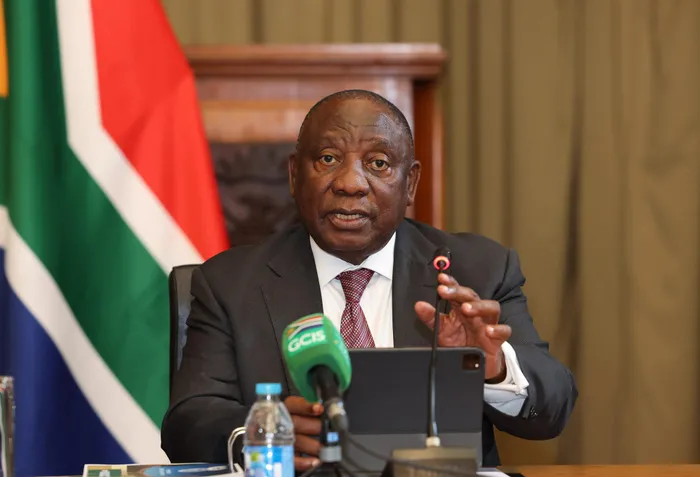
President Cyril Ramaphosa said corrupt government and private sector officials should be held accountable for their actions.
Image: Jairus Mmutle / GCIS
President Cyril Ramaphosa has issued a renewed call for systemic reform and unified action in South Africa’s ongoing battle against corruption, warning that both public institutions and the business sector must be held to the same standard of accountability.
In his weekly newsletter on Monday, the president reflected on the final report submitted by the National Anti-Corruption Advisory Council (NACAC), whose three-year term concluded recently.
Established in 2022, the council was tasked with guiding the implementation of the National Anti-Corruption Strategy and strengthening anti-corruption mechanisms within the state.
A key recommendation in the report is the creation of a permanent, independent anti-corruption agency — the Office of Public Integrity and Anti-Corruption.
This body would be mandated to prevent, investigate and address systemic corruption, responding directly to recommendations made by the State Capture Commission.
“This fight requires dismantling systems of patronage entrenched over many years,” Ramaphosa wrote.
He called for closed regulatory loopholes and strengthen state capacity to manage complex cases.
Beyond government, Ramaphosa placed significant emphasis on private sector accountability, noting that corporate corruption — such as tax evasion, inflated contracts, market manipulation, and tender collusion — causes deep economic harm but is often overlooked.
“We need to tackle public and private sector corruption with equal energy,” he said.
“Corruption is not just the result of a few bad actors; it can become embedded in organisational culture.”
While the president acknowledged public frustration over the pace of convictions, he highlighted encouraging developments.
Law enforcement agencies, including the Hawks and the Special Investigating Unit (SIU), are currently probing corruption in institutions such as the Post Office, Postbank, and municipalities, as well as allegations involving Eskom, Transnet, and the South African Police Service.
South Africa’s progress in fighting financial crimes has also been noted internationally.
The OECD recently praised the country’s efforts to investigate foreign bribery, while the Financial Action Task Force (FATF) confirmed that South Africa has completed all 22 action items required for removal from its grey list.
However, Ramaphosa cautioned that success will not come from arrests alone.
“Fighting corruption extends way beyond putting culprits in the dock,” he said.
It required institutional reform and cultural change — in the public service, in business, and across society, he said.
As the government reviews NACAC’s recommendations for Cabinet consideration, Ramaphosa reiterated the broader goal: “We need to build transparent, accountable and ethical institutions… and a society rooted in integrity.”
kamogelo.moichela@iol.co.za
IOL Politics